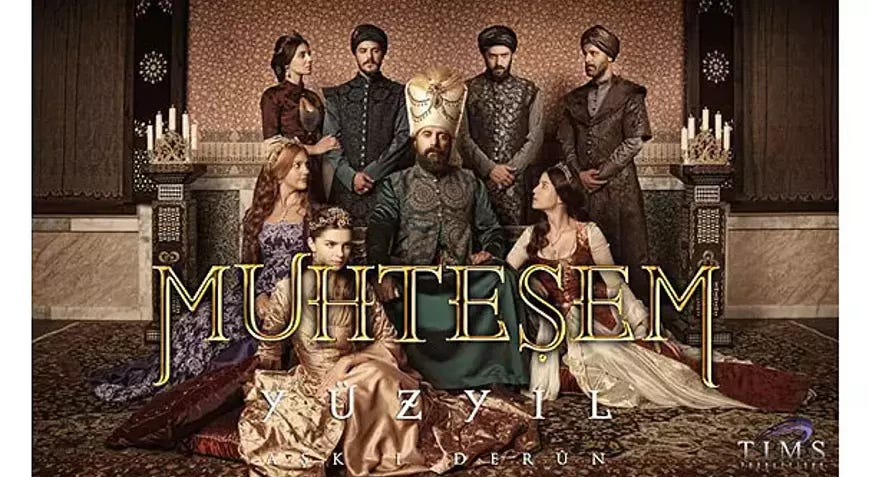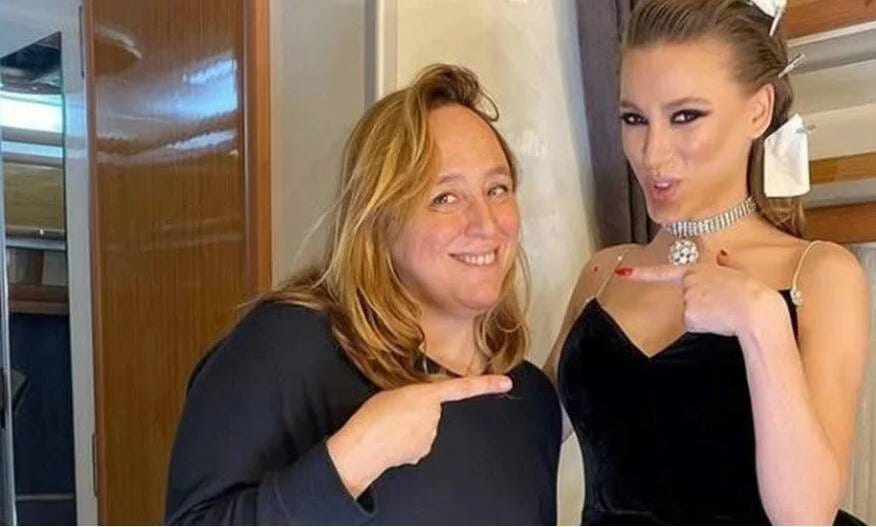Behind Turkey’s latest crackdown
A fresh wave of arrests and investigations is sweeping through Turkey, ensnaring opposition figures, journalists, and even actors and their agent.
I consider myself a close follower of the news, yet even I am struggling to keep track of who’s been detained or arrested in Turkey over the past few months. The regime appears to have entered one of its episodic crackdowns, targeting opposition figures en masse. This pattern first emerged in late 2009 and persisted for years through sham trials—Ergenekon and Sledgehammer—built on fabricated evidence and orchestrated by Fethullah Gülen’s network within the security forces and judiciary. A second offensive followed the Gezi protests in 2013, a third after the botched coup in 2016, this time aimed at Gülenists (now labeled as the FETÖ terror organization).
But don’t mistake the periods between these offensives for times of democracy, where free speech and human rights were respected. You wouldn’t. As readers of this publication, you know too well the nature of authoritarian regimes. The opposition—particularly Kurdish politicians and journalists—has always borne the brunt of repression: mayorships seized, prison sentences for something said on TV or posted online. At the very least, they lose their jobs. Many of my friends and colleagues have endured this suffocating atmosphere for decades. And believe me, it’s not something one ever truly gets used to. You think you do, but you don’t. It’s a constant trauma.
Now, it seems we have entered a fourth wave. A flurry of arrests and detentions targeting opposition figures—though "opposition" is a loose category in Erdoğan’s Turkey. The targets could be members of opposition parties or simply people who said something the government didn’t like.
In the past three weeks, repression has intensified. The CHP youth branch head was briefly detained over a social media post. Istanbul Mayor Ekrem İmamoğlu—widely seen as Erdoğan’s strongest future challenger—now faces a judicial probe for criticizing the arrest. Victory Party leader Ümit Özdağ was detained for allegedly insulting Erdoğan. Two CHP district mayors in Istanbul were arrested—one for supposed terrorism links, another for tender rigging—while a third mayor in the east was removed. Meanwhile, six elected pro-Kurdish DEM Party mayors were dismissed over similar allegations and replaced by government-appointed trustees (kayyum).

And now, an absurd new chapter: Ayşe Barım, a well-known talent manager representing top actors—including stars of Magnificent Suleiman—was arrested. Her alleged crime? Attempting to overthrow the government by sending actors to the Gezi protests. Yes, it’s as ludicrous as it sounds. The actors in question, whose photos from 12 years ago show them at the protests simply sitting, walking—doing ordinary human things—explained that they had joined Gezi of their own free will, straight from the Magnificent Suleiman set. The prosecutor didn’t care. Barım was arrested. Two of the actors are now under investigation for perjury, including Halit Ergenç, who played Suleiman himself.
We’ll return to this part of the story in a moment.
For now, let’s try to make sense of this latest offensive by Erdoğan’s regime.
Why so unhinged? Because – why not?
Three factors are at play, all intertwined:
The threat of Ekrem İmamoğlu. In the March 2023 municipal elections, AKP lost nearly all major cities to the opposition CHP. İmamoğlu, Erdoğan’s arch-nemesis, is the most likely presidential challenger in 2028—or sooner. Several legal cases against him are already in motion, designed to cripple his political career, if not imprison him. This wave of investigations preempts any major protests or resistance if and when İmamoğlu is disqualified from running.
The need to crush dissent ahead of constitutional changes. Erdoğan must amend the constitution to run for a third term. Any attempt to push through these changes, coupled with economic collapse—soaring poverty, a rising cost of living, and discontent even among AKP’s base—could trigger protests. The regime is making it clear: dissent will be met with an iron fist.
A sense of impunity. Erdoğan’s inner circle believes they have emerged as the victors of the Syrian quagmire and that the current geopolitical climate allows him to act without consequence. They target and arrest critics, opposition figures, and public personalities. Because they can. Why? Well, why not?
We are witnessing the unhinged acts of an authoritarian regime teetering on the edge.
"Where’s My Cut of the Turkish TV Boom?" — Whined the Uncreative and Untalented
In targeting top actors and their agent Ayşe Barım, the regime is after bir taşla iki kuş vurmak—killing two birds with one stone. By accusing actors and their agent of orchestrating participation in the Gezi protests, voicing outrage over wildfires and earthquakes, or publicly supporting Istanbul’s mayor, the government preemptively curbs any future political stance from these artists. And that matters—because they hold significant influence over certain segments of society.

But there’s another layer to this.
The initial investigation into Ayşe Barım and her agency began three weeks ago with accusations of monopolization in the film and TV industry. The charge? That she was "dominating" the sector with her roster of actors—which, in reality, just meant she was doing an exceptional job for her clients. But the real issue wasn’t her success. It was that production companies close to the government weren’t getting their cut of the Turkish TV industry’s booming revenues.
And the numbers aren’t small. The Turkish TV sector generates over $500 million in exports to 150 countries—closer to 200 when factoring in digital platforms. Turkish dramas have dedicated audiences not just in the Middle East and Latin America but also in the U.S., Australia, and across Europe. Digital platforms alone have expanded the reach of Turkish productions to an estimated 1 billion unique viewers worldwide.
According to Netflix, which operates in Turkey under an RTÜK license, 47 Turkish titles have made it onto the platform’s weekly Global Top 10 lists since 2021. Local productions have been among the most-watched in 92 countries, appearing in the Top 10 for a combined 184 weeks over the past four years—proof of the sustained global demand for Turkish storytelling.
The problem, as the regime sees it, is that the actors starring in these series, the production companies behind them, the directors filming them, and the agents representing them—none of them are "regime guys." They don’t have to be political. They don’t have to be actively involved in any oppositional effort against the AKP. It’s enough that they don’t openly support the government and that their lifestyles don’t align with the conservative values the AKP parades.
The frustration over cultural hegemony
This ties into a broader issue: the AKP’s failure—or more importantly, its own perception of this failure and the frustration it breeds—to achieve cultural hegemony despite more than two decades in power.
Erdogan himself has been lamenting this for years. Take his 2017 speech:
"Holding political power is one thing; achieving social and cultural dominance is another. We have been in uninterrupted political power for 14 years, yet we still face challenges in establishing our social and cultural authority. I am well aware that in many key sectors—from media and cinema to science, technology, and law—individuals, groups, and factions with a mindset foreign to their own country and nation continue to hold the most influential positions."
This kind of a push and pull isn’t unique to Turkey. Across the post-colonial world, right-wing, conservative, Islamist, and nationalist groups have long viewed the cultural landscape as foreign, shaped by forces they consider alien. But in Turkey—never colonized in the aftermath of World War I—the argument hinges on something else: the belief that the founding of the Republic severed ties with Ottoman heritage, replacing it with a Western, secular, modern identity. So, the dominant culture is foreign, and only conservatives and Islamists hold the key to our "authentic" roots.
Two weeks ago, the AKP declared 2025 as the "Year of the Family." And Erdogan, naturally, linked this to TV series:
"The series, films, publications, and other content on digital platforms often lead to irreversible damage—cultural erosion, identity loss. These materials, deliberately and systematically disseminated, pave the way for gender-neutral policies, LGBT movements, and other unnatural trends. The primary target of these so-called gender-neutral policies is the family and the sanctity of the family institution."
Then, seamlessly, he tied LGBT to Zionism:
"Criticism of LGBT issues, much like legitimate criticisms of Zionism, is immediately silenced. Anyone who defends human nature, morality, and family is subjected to heavy pressure and condemned to obscurity by the enforcers of global culture. We all know examples of this in politics. [...] I firmly believe that, along with our institutions, academia, the media, the arts, and civil society will take on more responsibility in this matter. I remind local administrations once again that they should not support movements that undermine the foundational pillars of our national identity."
It’s the same script every time. Cultural hegemony remains the regime’s Achilles’ heel—an enduring source of frustration. And when control eludes them, repression becomes the fallback.
This is a deeper, more intricate debate—one that should also address the assault on academia and the rising wave of anti-intellectualism. I’ll pick it up next week, inşallah, if events in Turkey and the Middle East give me the space to focus on cultural hegemony. Until then, let’s plan to meet again—with Gramsci and Bourdieu in tow.




I hope that one day - with the help of the brilliant work you are doing here (also by means of your research and teaching new generations) - the scales tip favourably into the direction of freedom and the dominance of a culture of flourishing, reform and evolution (mind you, not only in Turkey - we could all use some more of that 🙄😉)... Btw it is so strange that after all these years of fighting for civil rights, equality and democracy (worldwide) we still/again see a backlash when it comes to central values surrounding family and all the different forms of living together in solidarity when the only thing we all have in common as humans is the capacity to love (which I naively want to state) should be enough. But it still seems to be a massive "hit" to fragment and polarise societies instead of fostering a wonderful big "whole" out of the different groups a country consists of... Yes! When these reactionary forces have shown that they just don't do a very good job for the majority and we (the other side) have managed to stem and ultimately reverse the tide of their deceptive narratives maybe we can finally have some progress. Thanks for keeping your substack-community up to date 😊!
Great insights into current issues in Turkey and a superbly organized article